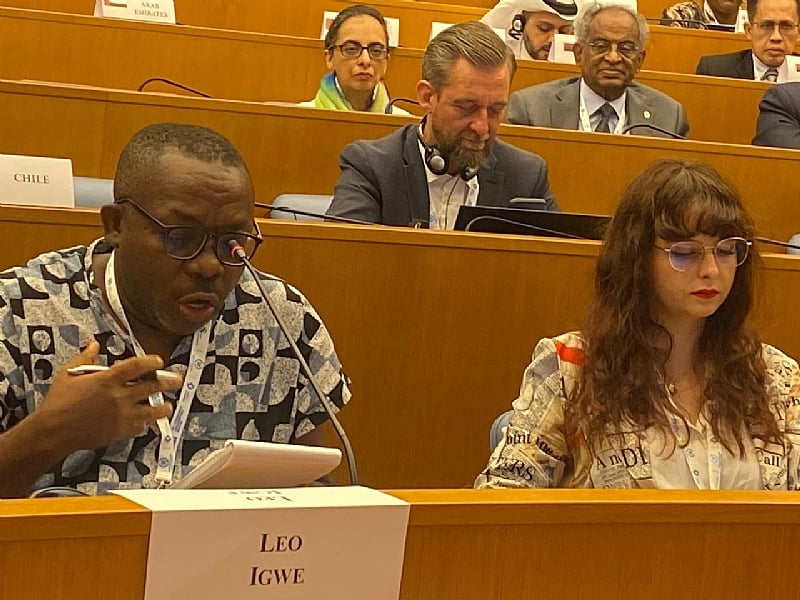The Inter-Parliamentary Union (IPU) conference on interfaith dialogue in Rome, graced by a papal audience, served as a potent reminder of the vital role of dialogue and debate in fostering understanding and peace amidst diverse belief systems. Over sixty nations convened to explore parliamentary diplomacy as a tool for promoting interfaith harmony, with discussions often circling back to the pressing need for dialogue in resolving global conflicts, particularly in the Middle East, where faith-based tensions remain a critical concern. The presence of representatives spanning a vast spectrum of beliefs, from traditional faiths to secular humanism, underscored the conference’s commitment to inclusivity and the potential for dialogue to bridge divides. My presence, representing Humanists International, further exemplified this inclusivity, offering a platform for non-religious perspectives within the broader interfaith discussion. The experience provided invaluable firsthand insight into the power of dialogue to connect disparate groups, fostering a sense of shared humanity across ideological boundaries.
The interplay of debate and dialogue emerged as a key theme in reflecting upon the conference’s significance. These twin pillars of human interaction are essential for individual and collective growth, driving progress across various fields of human endeavor, from culture and politics to science and religion. They are, in essence, the engine of civilization, propelling us forward through the continuous exchange of ideas and perspectives. Debates, by their nature, involve argumentation, opposition, and a стремление to persuade or be persuaded. They expose weaknesses in opposing viewpoints, pushing us to refine our own understanding and strive for intellectual excellence. Dialogue, on the other hand, emphasizes understanding and cooperation, acknowledging the validity and value inherent in different perspectives. It cultivates tolerance and encourages us to seek common ground, recognizing the shared humanity that transcends our differences.
The Rome conference provided a compelling illustration of this interplay. While robust discussions undoubtedly took place during the sessions, the overall atmosphere was one of mutual respect and a willingness to engage constructively. Participants from various faith and belief communities shared meals, exchanged stories, and found common ground despite their differing worldviews. The seemingly simple act of sitting together, sharing jokes and concerns, transcended theological differences and fostered a sense of camaraderie. A humorous anecdote involving a participant questioning my designation as a “religious leader” highlighted the lighthearted spirit of the event and the ability to connect on a human level despite differing labels. These informal interactions proved as valuable as the formal sessions, demonstrating the power of human connection to overcome ideological barriers.
These personal interactions underscored the importance of disagreeing without being disagreeable. Dialogue does not negate the need for debate; rather, it creates a space where disagreements can be explored constructively, fostering understanding and mutual respect. Faith and belief systems are too integral to human life to be shielded from scrutiny and debate. Challenging and questioning different perspectives is not only permissible but necessary for intellectual growth and the pursuit of truth. However, the conference emphasized the overarching importance of recognizing our shared humanity, regardless of the outcome of these debates. Whether we agree or disagree, whether we perceive another’s beliefs as true or false, we remain interconnected as members of the human family.
The conference’s message resonates deeply: debate and dialogue are not merely tools for intellectual sparring; they are existential imperatives. Navigating the complex landscape of interfaith relations requires wisdom, discernment, and a keen awareness of when to debate and when to dialogue. There are times when challenging and questioning beliefs is essential, and there are times when cooperation and understanding take precedence in pursuit of peaceful coexistence. The key lies in striking the right balance, recognizing the inherent value of both debate and dialogue in fostering a more harmonious and understanding world.
The Rome conference therefore served as a microcosm of the global challenge of interfaith relations. It highlighted the importance of creating spaces where diverse voices can be heard, where disagreements can be aired respectfully, and where common ground can be discovered. The experience reinforced the conviction that both debate and dialogue are indispensable tools for building bridges across divides, promoting peaceful coexistence, and ultimately, strengthening the fabric of our shared humanity. The conference’s success lay not only in the formal discussions but in the informal interactions, the shared meals, the laughter, and the recognition that beyond our differences, we are all united by our shared human experience. This understanding, nurtured through both debate and dialogue, offers hope for a future where differing beliefs can coexist peacefully, contributing to a richer, more harmonious world.


